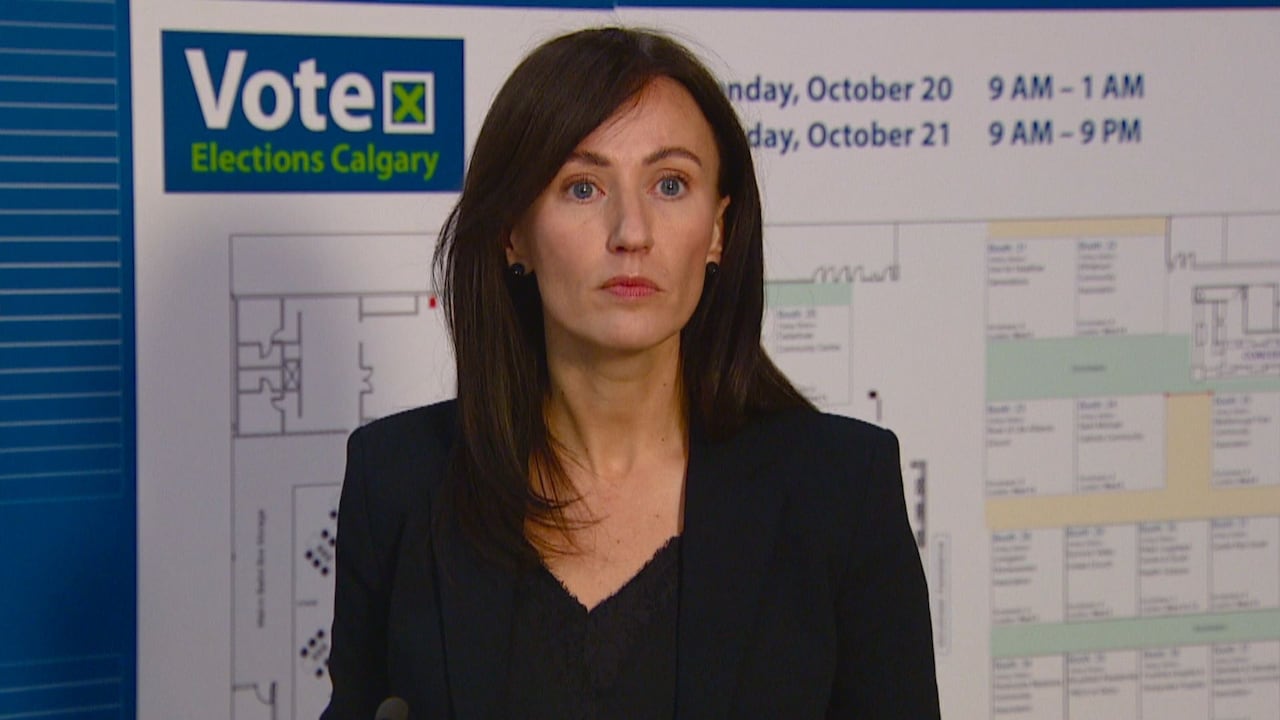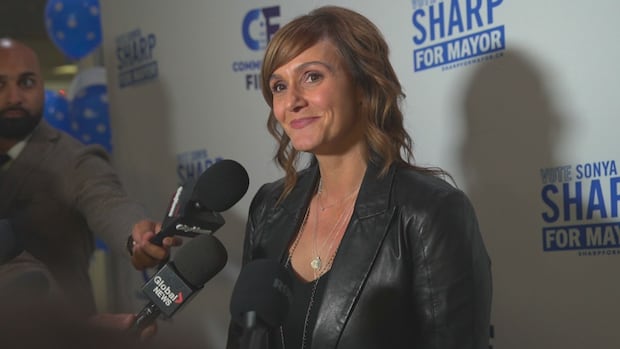A mere 583 votes make up the difference between Jeromy Farkas being named mayor of Calgary and Sonya Sharp, according to unofficial results of the 2025 mayoral election.
That margin is “razor-thin,” in the estimation of Sharp, and enough to call for a recount — something Farkas has no qualms about.
“It’s obviously very close, and I fully support the recount,” Farkas told CBC Radio’s the Calgary Eyeopener on Wednesday.
You may think you know how recounts work. But new rules introduced by the provincial government mean we don’t actually have a lot of clarity today about how this recount will play out.
Part of the confusion is that Alberta’s rules create two recount lanes with different ticking clocks.
And it’s important to note that as of Tuesday night, Calgary’s returning officer Kate Martin said she was not yet in receipt of a recount application.
So let’s sort out what the rules are and what to keep an eye out for over the next few days as the dust settles.
The two lanes
In deciding how to seek a recount, Sharp essentially has two options.
First, we have the quick-turn option, while results are still unofficial. As you read this, this deadline has already passed. (It has to take place within 44 hours of polls closing.)
The returning officer can decide to move ahead with a recount of the vote cast at one or more voting stations for one of these reasons:
Reasonable grounds the station’s count is off.Rejected or objected ballots that, if ruled differently, could change the result.An administrative or technical error that could have affected the count.
Sharp could also apply for a judicial recount. Candidates have 19 days after the close of voting stations on Election Day to do so.
There’s also Lane 2, which kicks in after the city posts the official results, which is set to happen Friday. Only the runner-up in a race can request a recount in a 72-hour window after the results are official.
But — and stay with us — here’s where things really get complicated.
Which ballots get recounted?
On Tuesday night, Martin explained how Lane 2 would work.
Farkas and Sharp are separated by less than 0.5 per cent of the total number of ballots cast for mayor. Under the rules, the returning officer can move forward with a recount if the difference between the first and second place candidates are separated by 0.5 per cent.
But that doesn’t necessarily mean a citywide recount. It would mean targeting particular polling stations where the vote was separated by 0.5 per cent or less.
“That is how the Local Authorities Election Act prescribes the recount provisions,” Martin told reporters. “It’s very clear — at a voting station.”
 Kate Martin, Calgary’s returning officer, pictured on Tuesday evening. (Nick Brizuela/CBC)
Kate Martin, Calgary’s returning officer, pictured on Tuesday evening. (Nick Brizuela/CBC)
When asked about this by CBC Radio’s Alberta at Noon host Kathleen Petty on Wednesday, Minister of Municipal Affairs Dan Williams said he hadn’t yet had a legal briefing on the details of a challenge.
“I’m happy to address it, but the intent here is to say where we see a close vote, there’s the ability for a recount,” Williams said.
Asked whether that should apply to all polling stations or individual polling stations that meet the 0.5 per cent criteria, Williams said he would be happy to have contact with Calgary’s returning officer to determine what “their interpretation of the legislation is.”
LISTEN | Alberta at Noon speaks with the minister of municipal affairs about how Election Day played out across the province:
Alberta at Noon52:39Municipal election wait times and results
Assessing municipal election day across Alberta. Turnout was low and ballot counting was slow and lineups in many places were long, but new councils and mayors and trustees were elected. How did it go for you?
John Santos, a data scientist with Janet Brown Opinion Research, said it makes sense to count all of the votes, even if there’s a low chance of the overall result changing.
“We can sit here and we can conduct these thought experiments and counterfactuals, but at the end of the day, democracy is decided based on a number of votes,” he said.
“We need to know those votes and the public needs to know that they were counted properly and accurately in order to maintain faith in the system.”
CBC News has requested clarification on the recount rules from the province.
What’s next?
Elections Calgary said recount costs come out of its election budget. The city has already staffed a counting centre and would bring back election workers in the event of a recount.
If an official results recount is granted, the law requires it be completed by noon on Oct. 29, the same day council is scheduled to be sworn in.

